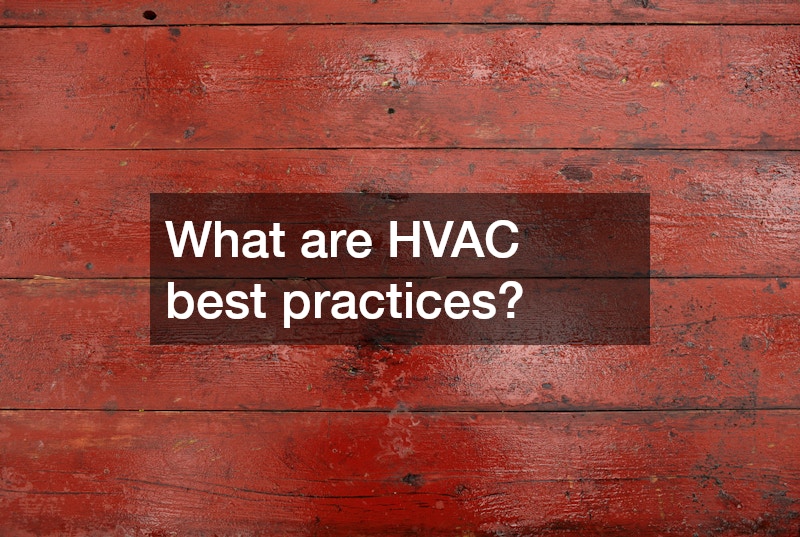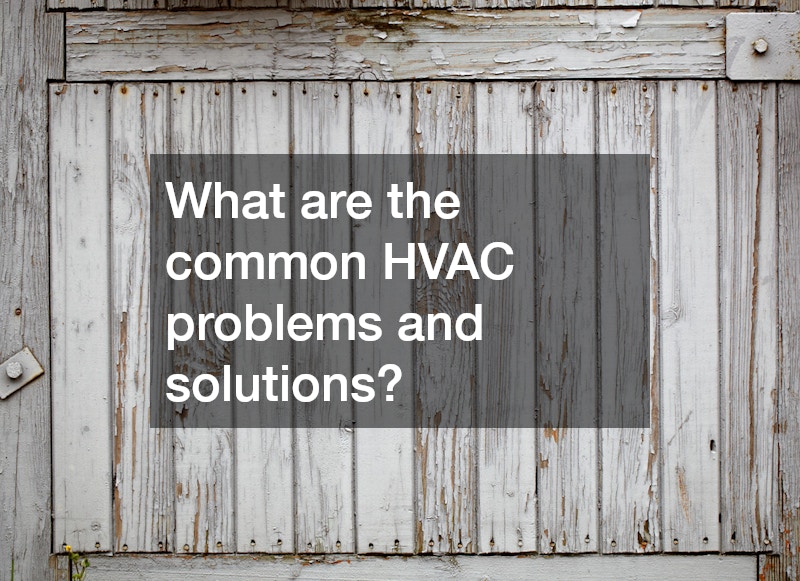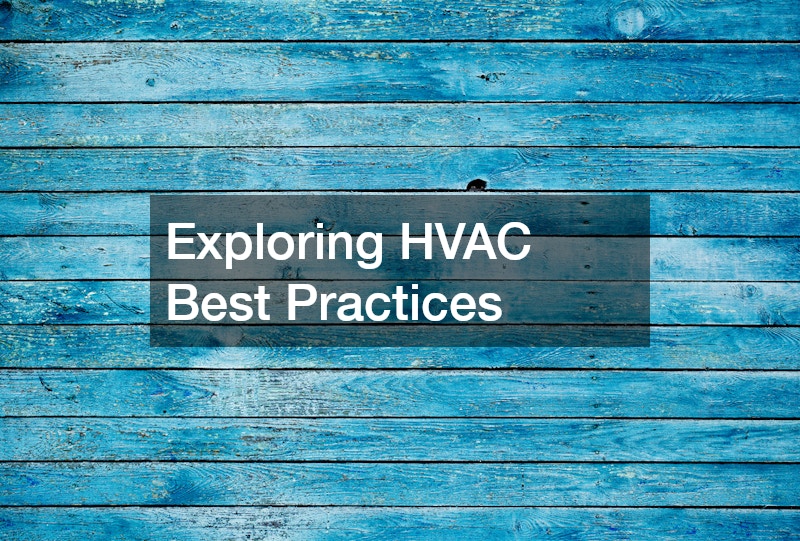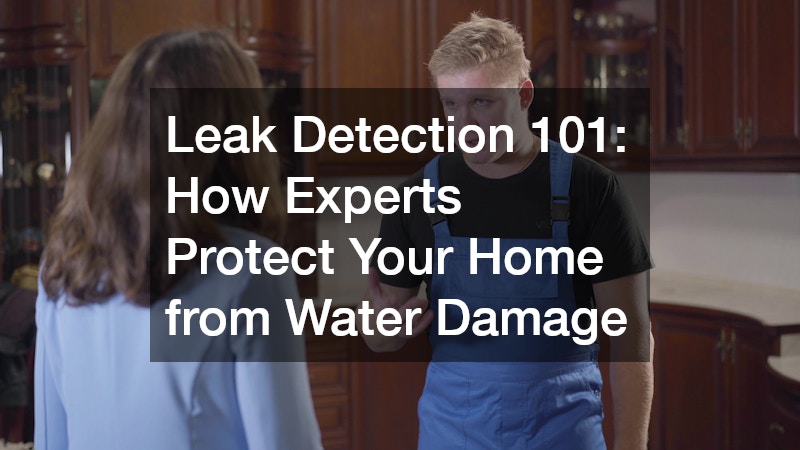Understanding your heating, ventilation, and air conditioning (HVAC) system is critical to maintaining comfort, energy efficiency, and safety within any building. Whether for residential or commercial use, HVAC systems are major contributors to energy consumption and indoor air quality. Adopting best practices ensures not only lower operational costs but also contributes to a sustainable future. This article explores essential HVAC best practices, maintenance tips, energy-saving methods, technological advancements, and how to choose the right professionals to keep your system running smoothly—especially in connection with heating, air conditioning, and even plumbing supply coordination.
What are HVAC best practices?

Defining HVAC best practices
HVAC best practices refer to the methods and strategies recommended by industry professionals and regulatory bodies to ensure optimal system performance. These practices include proper installation, routine maintenance, energy-efficient operations, and adherence to safety standards. They are designed to extend the life of equipment while maintaining healthy indoor environments, whether the system involves air conditioning units or complex boilers integrated into heating systems.
Benefits of following best practices
Adhering to HVAC best practices results in improved system efficiency, reduced energy bills, enhanced indoor air quality, and prolonged equipment lifespan. It also minimizes the frequency of heating repairs, protects underground utility lines during installation or upgrades, and helps maintain consistent comfort levels throughout the space.
Common industry standards
The HVAC industry follows several standards from organizations such as the American Society of Heating, Refrigerating and Air-Conditioning Engineers (ASHRAE) and the Air Conditioning Contractors of America (ACCA). These standards guide installation, energy performance, ventilation rates, and indoor air quality to ensure systems operate safely and efficiently. They also address the handling of heating oil providers and local regulations that intersect with utility management.
Impact on energy efficiency
By following best practices, homeowners and businesses can significantly reduce their energy usage. Properly maintained and correctly sized systems operate more efficiently, using less power to achieve the desired temperature. In climates where heating systems dominate, such efficiencies also reduce dependence on heating oil providers and minimize costs associated with heating maintenance.
Environmental considerations
Best practices also consider the environmental footprint of HVAC systems. Using energy-efficient equipment and environmentally friendly refrigerants reduces greenhouse gas emissions. Additionally, regular maintenance prevents energy waste, making HVAC systems more sustainable and decreasing demand on fuel sources such as natural gas and heating oil.
How often should HVAC systems be serviced?
Recommended service schedules
Most HVAC experts recommend servicing your system at least twice a year—once before the cooling season and once before the heating season. These checkups ensure that each component functions properly and help prevent breakdowns during peak usage. HVAC contractors often offer seasonal packages that include both air conditioning and heating maintenance, tailored to your location and system type.
Signs that maintenance is needed
Indicators that your system needs attention include unusual noises, poor airflow, uneven temperatures, higher energy bills, and frequent cycling. In heating systems, signs of malfunction could also include delayed ignition, cold spots, and clunking sounds coming from boilers or furnaces. Addressing these issues promptly can prevent more costly heating repairs in the future.
DIY maintenance tips
Homeowners can support HVAC efficiency through simple maintenance tasks. These include changing or cleaning air filters monthly, ensuring vents are unobstructed, and keeping outdoor units free from debris. Checking that boilers maintain adequate pressure and monitoring fuel levels from heating oil providers are additional tasks for those with heating-specific systems. While helpful, these tasks should complement—not replace—professional inspections.
Professional inspection guidelines
Certified HVAC contractors conduct comprehensive system checks, including refrigerant level assessments, electrical inspections, and efficiency tests. For heating systems, they may inspect burners, heat exchangers, and the performance of thermostats. Technicians also ensure that plumbing supply connections and underground utility lines remain safe and undisturbed during any work.
Seasonal maintenance tasks
Each season places different demands on HVAC systems. Preparing your system for winter might involve checking the furnace, cleaning boilers, and sealing ductwork, while summer prep often includes cleaning condenser coils and verifying refrigerant levels. For households using heating oil, this may also involve scheduling timely deliveries from heating oil providers before cold weather sets in.
How can HVAC systems improve energy efficiency?
Choosing the right equipment
Selecting an HVAC system that matches your specific needs is key to efficiency. Systems too large or too small for the space will waste energy and fail to maintain comfort. Consulting with HVAC contractors during the selection phase ensures the right fit, whether you’re installing air conditioning in a warm climate or upgrading heating systems to handle winter extremes.
Upgrading to energy-efficient systems
Modern HVAC units are significantly more efficient than older models. Systems with ENERGY STAR certification use advanced technology to reduce consumption. For heating systems, replacing older boilers or outdated furnaces with newer models can drastically cut fuel usage. Upgrading these systems also minimizes emissions, reducing your environmental footprint.
Proper insulation and sealing
Even the most efficient HVAC system will struggle in a poorly insulated home. Sealing gaps around windows and doors and ensuring adequate attic insulation reduces the load on your system and maintains a consistent indoor temperature. This is especially vital for buildings using boilers or ducted air conditioning, as energy loss through leaks significantly reduces system efficiency.
Programmable thermostats
Installing a programmable or smart thermostat allows for better control over heating and cooling schedules. These devices can automatically adjust the temperature based on occupancy patterns, significantly reducing energy waste. Smart thermostats can also be programmed to optimize the use of heating oil during peak usage times.
Regular system tune-ups
Routine tune-ups keep your HVAC system in top shape. Technicians can clean components, lubricate moving parts, and calibrate controls to maintain optimal efficiency. In heating-focused homes, this includes monitoring fuel efficiency, evaluating boiler performance, and checking for signs of carbon monoxide. Preventive care reduces long-term costs and improves reliability.
What are the common HVAC problems and solutions?

Airflow issues
Blocked vents, dirty filters, or clogged ductwork often cause airflow problems. These reduce system efficiency and unevenly distribute air. Cleaning filters and ensuring unobstructed vents are basic steps toward resolving airflow issues. Airflow can also be affected by poorly sized plumbing supply vents or interference from underground utility lines.
Thermostat malfunctions
If your system isn’t responding properly, the thermostat may be the culprit. It could be incorrectly calibrated, improperly placed, or malfunctioning. Replacing or upgrading the thermostat is often an effective solution, especially if integrated with smart home systems managing both heating and air conditioning.
Refrigerant leaks
Low refrigerant levels typically indicate a leak, which can lead to poor cooling performance. Because refrigerants are hazardous, a certified technician should handle detection and recharging of the system. In heating setups with heat pumps, refrigerant levels are just as crucial to system performance.
Noisy systems
Unusual noises such as banging, rattling, or humming can point to loose components, motor issues, or duct problems. Noises from boilers may suggest mineral buildup or pressure problems. Timely inspections help pinpoint and correct these issues before they escalate, preventing more serious heating repairs or air conditioning failures.
Uneven heating or cooling
Rooms that are too hot or too cold suggest airflow imbalances or zoning problems. Solutions may include adjusting dampers, repairing ductwork, or installing a zoning system to manage temperature by area. Working with local plumbers may be necessary if these problems stem from combined HVAC and radiant floor heating systems.
How to choose the best HVAC system for your needs?
Assessing home or building size
A system’s capacity must align with the space it serves. Oversized systems waste energy and short-cycle frequently, while undersized systems strain to meet demand. Professionals conduct load calculations to recommend the proper system size for both heating and cooling needs, taking into account your home’s construction and layout.
Evaluating climate and location
Local climate heavily influences system choice. Humid climates may require systems with strong dehumidification capabilities, while colder regions benefit from efficient heating solutions like boilers or hybrid systems that combine electricity and heating oil. HVAC contractors can provide region-specific recommendations.
Understanding different system types
HVAC options range from split systems to packaged units, ductless mini-splits, and geothermal systems. For heating, choices include electric furnaces, gas furnaces, and boilers. Each has distinct pros and cons. A professional assessment helps match system type to your space and usage patterns, factoring in local availability of fuel and heating oil providers.
Budget considerations
Costs go beyond initial installation. Energy efficiency, repair frequency, and lifespan affect long-term value. It’s important to balance up-front costs with projected energy savings and maintenance requirements. Systems integrated with plumbing supply needs or requiring careful routing around underground utility lines may have higher installation costs.
Energy efficiency ratings
Look for systems with high SEER (Seasonal Energy Efficiency Ratio) or AFUE (Annual Fuel Utilization Efficiency) ratings. Higher numbers indicate greater efficiency, helping lower monthly utility costs. Boilers, in particular, should be selected with high AFUE ratings to ensure heating efficiency.
What are the latest innovations in HVAC technology?

Smart thermostats
Smart thermostats offer remote control, learning algorithms, and energy usage reports. They optimize temperature settings based on your habits and provide cost-saving suggestions, improving both comfort and efficiency across heating and air conditioning systems.
Zoning systems
Zoning allows different parts of a building to be heated or cooled independently. This not only improves comfort but also reduces energy waste by targeting temperature control where it’s needed most, often integrating with both HVAC and plumbing supply systems in larger homes.
Variable speed technology
Variable speed motors and compressors adjust their output in real time rather than operating at full capacity constantly. This leads to quieter operation, better humidity control, and enhanced energy savings. Variable speed boilers are also becoming more common in advanced heating systems.
Environmentally friendly refrigerants
The shift toward low-global-warming-potential (GWP) refrigerants is a key innovation. New refrigerants like R-32 and R-454B offer improved performance with less environmental impact. Heating systems are also benefiting from bio-based heating oils and electric boiler technologies.
Remote monitoring capabilities
IoT-connected HVAC systems allow users and service providers to monitor system performance remotely. Real-time alerts for maintenance or failure enhance response times and reduce downtime. Some systems even detect issues related to heating oil supply or underground utility line disruptions.
How to extend the lifespan of your HVAC system?
Regular maintenance routines
The most effective way to extend system life is consistent maintenance. Scheduling professional inspections, cleaning coils, and replacing worn parts ensures that your system operates efficiently year-round. This is true whether your focus is air conditioning performance or heating maintenance.
Proper usage tips
Avoid setting extreme temperatures, which can stress your system. Use ceiling fans to support temperature distribution and rely on programmable thermostats to reduce system strain during low-occupancy periods. Local plumbers can also assist in balancing water-based heating systems like boilers or radiant floor heating.
Keeping components clean
Dust and debris can clog filters, block vents, and reduce coil efficiency. Regular cleaning helps maintain airflow and reduces the risk of overheating or component failure. Clean burners and heat exchangers are essential for boilers to function properly during heating seasons.
Monitoring system performance
Pay attention to how your system behaves. Tracking energy consumption, airflow, and response time can alert you to potential problems early, allowing for proactive repairs. Monitoring fuel levels and working with reliable heating oil providers ensures seamless operation during winter months.
Upgrading outdated parts
Replacing aging components like motors or thermostats can improve system performance. Upgrades allow newer technology to enhance older systems, often postponing full replacements. In homes with complex systems, coordination with plumbing supply experts may be necessary for integrated solutions.
How does air quality impact HVAC performance?
Identifying indoor air pollutants
Common indoor pollutants include dust, pet dander, mold spores, and volatile organic compounds (VOCs). These contaminants reduce air quality and can negatively impact HVAC efficiency and health, especially when air recirculates through heating and air conditioning systems without filtration.
Effects of air quality on HVAC
Poor air quality causes filters to clog faster, reducing airflow and making systems work harder. It can also lead to mold growth in ductwork, affecting both performance and indoor health. Local plumbers may be consulted if moisture problems are tied to plumbing supply leaks.
Air filtration systems
High-efficiency particulate air (HEPA) filters and electrostatic air purifiers can capture smaller particles than standard filters. These systems significantly improve indoor air quality and protect HVAC components. Boilers can also be protected from airborne debris with sealed combustion systems.
Ventilation improvements
Proper ventilation brings in fresh air and expels stale air. Mechanical ventilation systems such as energy recovery ventilators (ERVs) improve air quality while conserving energy. These systems must be installed with awareness of underground utility lines and existing plumbing infrastructure.
Integrating air purifiers
Standalone or built-in air purifiers neutralize odors, allergens, and pollutants. When combined with filtration and ventilation, they form a comprehensive indoor air quality strategy that benefits every component of your HVAC system, especially those handling both heating and air conditioning.
What should you know about HVAC system sizing?
Importance of proper sizing
Correct system sizing ensures consistent comfort, energy efficiency, and system longevity. Oversized systems cycle on and off frequently, while undersized units struggle to maintain the desired temperature. Proper sizing also minimizes strain on related systems like plumbing supply lines or oil tanks.
Calculating heating and cooling loads
Professionals use Manual J load calculations to determine the heating and cooling needs of a space. This accounts for square footage, insulation levels, window placement, and occupancy. Local plumbers and HVAC contractors often collaborate on load distribution in hybrid systems.
Consequences of incorrect sizing
Improperly sized systems can result in poor humidity control, higher energy bills, and shortened equipment lifespan. It also affects comfort and may lead to increased repair needs, especially for boilers and other heating equipment dependent on fuel delivery systems.
Using professional measurement tools
Contractors use advanced tools and software to analyze load requirements accurately. DIY sizing often leads to mistakes, so professional input is essential for optimal system performance and protection of underground utility lines.
Adjusting for seasonal variations
Some regions experience dramatic seasonal temperature shifts. Systems should be flexible enough to handle peak summer and winter conditions without compromising efficiency or comfort. Heating oil providers and local plumbers may be part of the preparation process for seasonal adjustments.
How to find a qualified HVAC technician or contractor?

Certifications and training
Look for technicians certified by organizations such as NATE (North American Technician Excellence). Certification ensures knowledge of current standards and technologies, whether for installing new air conditioning units or repairing legacy boilers.
Checking references and reviews
Past customer reviews and referrals provide insight into a technician’s reliability and workmanship. Look for consistent praise in areas like punctuality, pricing, and communication. Local plumbers can often recommend reputable HVAC contractors based on shared projects.
Understanding pricing and quotes
Request written estimates detailing labor, parts, and warranty terms. Transparent pricing helps avoid hidden fees and ensures you get fair value for services provided, including attention to plumbing supply and heating oil compatibility when needed.
Evaluating customer service
Responsive customer service reflects a contractor’s professionalism. Reliable providers are willing to answer questions, explain technical details, and offer long-term maintenance plans. Excellent service is especially important when dealing with complex issues involving underground utility lines.
Importance of insurance and licensing
Always verify that a contractor is licensed and insured. This protects both you and the technician in case of property damage or injury during service, particularly when working around underground utility lines or interfacing with plumbing supply systems.
Implementing HVAC best practices is essential for achieving comfort, efficiency, and reliability in any indoor environment. From regular maintenance and smart upgrades to selecting qualified professionals and understanding system sizing, each element plays a role in the performance and longevity of your HVAC system. By staying informed and proactive, especially concerning heating, air conditioning, heating repairs, boilers, and coordination with local plumbers and heating oil providers, you can enjoy a safer, healthier, and more energy-efficient indoor climate for years to come



